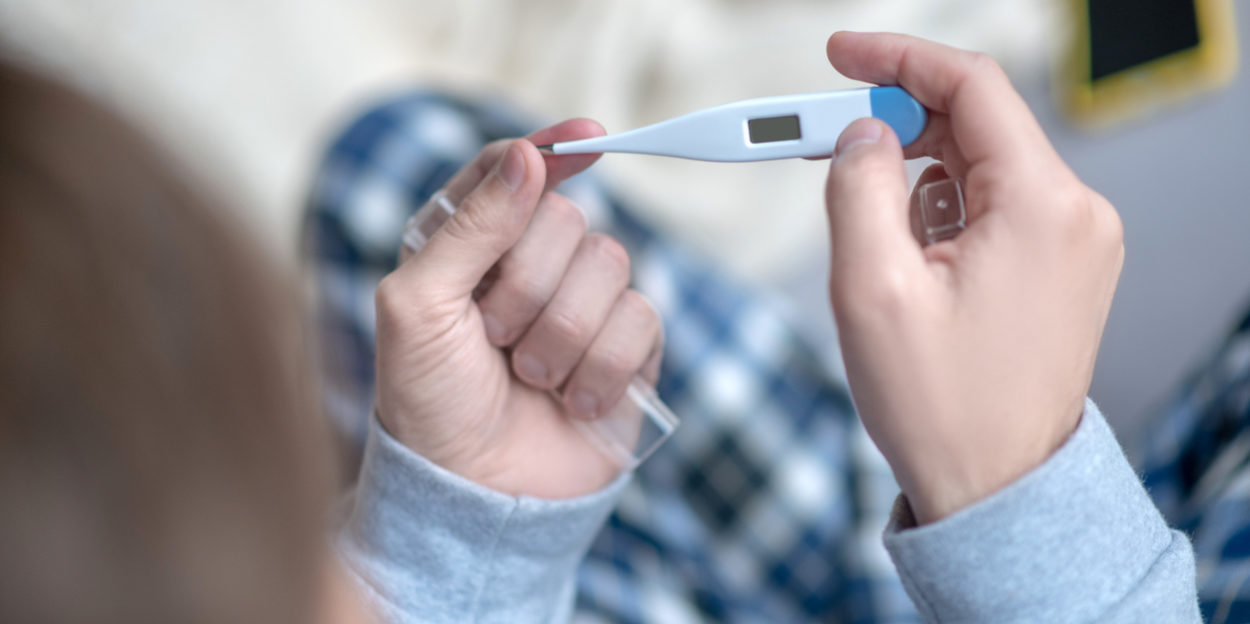Reducing Risk of COVID-19
Home » For Patients old » Living with NETs » Coronavirus Disease (COVID-19) Outbreak » Reducing Risk of COVID-19

Individuals with chronic medical illnesses like cancer should be aware of ways to prevent COVID-19 because they may face an increased risk for more serious illness. Take these steps to help prevent COVID-19.
Have supplies on hand
- Contact your health care provider to ask about obtaining extra necessary medications to have on hand in case there is an outbreak of COVID-19 in your community and you need to stay home for a prolonged period of time.
- Be sure you have over-the-counter medicines and medical supplies (thermometer, cough drops, tissues, etc.) to treat fever and other symptoms.
Take everyday precautions to prevent COVID-19
Avoid close contact with people who are sick.
Avoid crowds, especially in poorly ventilated spaces. Your risk of exposure to respiratory viruses like COVID-19 may increase in crowded, closed-in settings with little air circulation if there are people in the crowd who are sick.
- Wear a cloth face covering to cover your nose and mouth in community settings.
Avoid all non-essential travel including plane trips, and especially avoid embarking on cruise ships.
Keep hands and surfaces clean.
- Wash your hands often with soap and water for at least 20 seconds, especially after blowing your nose, coughing, or sneezing, or having been in a public place.
- If soap and water are not available, use a hand sanitizer that contains at least 60% alcohol.
- To the extent possible, avoid touching high-touch surfaces in public places — elevator buttons, door handles, handrails, handshaking with people, etc. Use a tissue or your sleeve to cover your hand or finger if you must touch something. Wash your hands after touching surfaces in public places.
- Avoid touching your face, nose, eyes, etc.
- Clean and disinfect your home to remove germs: practice routine cleaning of frequently touched surfaces (for example tables, doorknobs, light switches, handles, desks, toilets, faucets, sinks & cell phones).
Myth Busters
The World Health Organization (WHO) sets the record straight about 12 coronavirus myths. Get the facts.
If COVID-19 is widespread in your area
To help prevent COVID-19 when it is spreading in your community, take extra measures to stay safe. Put distance between yourself and other people to further reduce your risk of being exposed to the coronavirus.
- Stay home as much as possible.
- Consider ways of getting food brought to your house through family, social, or commercial networks.
- Have a plan for if you get sick
- Consult with your health care provider for more information about monitoring your health for symptoms suggestive of COVID-19.
- Stay in touch with others by phone or email. You may need to ask for help from friends, family, neighbors, community health workers, etc. if you become sick.
- Determine who can provide you with care if your caregiver gets sick.
Watch for symptoms and emergency warning signs
- Pay attention to potential COVID-19 symptoms including, fever, cough, and shortness of breath. If you feel like you are developing symptoms, call your doctor.
- If you develop emergency warning signs for COVID-19 get medical attention immediately. In adults, emergency warning signs* include:
- Difficulty breathing or shortness of breath.
- Persistent pain or pressure in the chest.
- New confusion or inability to arouse.
- Bluish lips or face.
Get medical attention immediately if you have any of the emergency warning signs listed above.
*This is not an all-inclusive list. Please consult your medical provider for any other symptoms that are severe or concerning.
What to do if you get sick
- Stay home and call your doctor. Let them know about your symptoms. Tell them that you have or may have COVID-19. This will help them take care of you and keep other people from getting infected or exposed
- Know when to get emergency help.
Sources: Centers for Disease Control, World Health Organization
Netrf.org terms and conditions: This information is not intended as and shall not be relied upon as medical advice. The Neuroendocrine Tumor Research Foundation encourages all users to discuss any information found here with their oncologist, physician, and/or appropriate qualified health professional.
Staying up-to-date on COVID-19
The COVID-19 outbreak is rapidly changing. Aspects of the content may have changed since it was published. To stay abreast of the situation, follow these trusted resources for the latest information:
